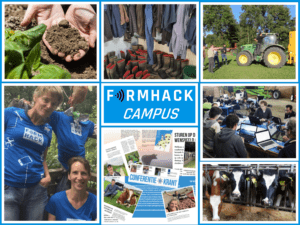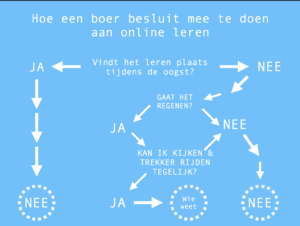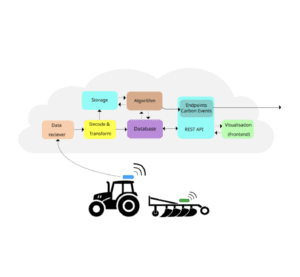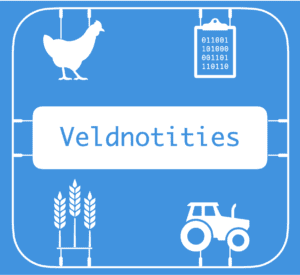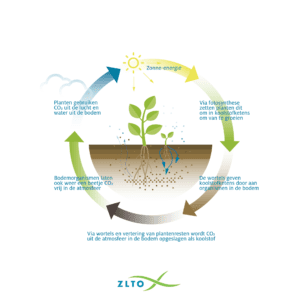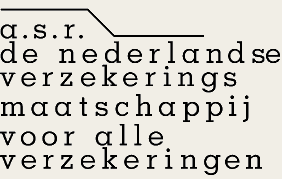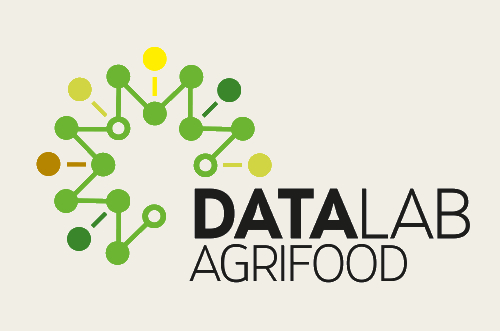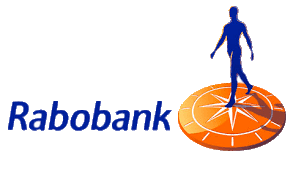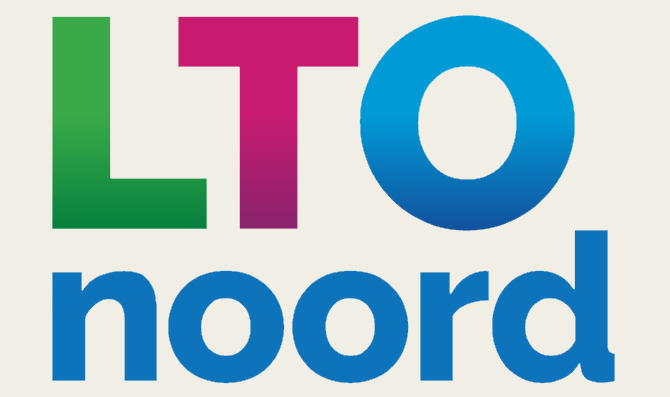
Door Anne Bruinsma
Results Big Data for Bees
On the 14th and 15th of December we ran the Big Data for Bees hackathon. A big thank you to the Ministry of Agriculture, Nature and Food Quality for making the hackathon possible and our event partners: Naturalis, WUR and the Jheronimus Academy of Data Science. Together we managed to finish 2019 with a bang: 7 nationalities, 6 teams, a Minister of Agriculture, amazing prize money and a bear that really likes his honey. Here is the recap!
Goal of the hackathon
The underlying goal of the hackathon, which was part of the Dutch Pollinator Strategy, was to support open access policies around biodiversity data. As science is converting data, knowledge and models into the public domain, hackers can help develop and test this common knowledge infrastructure and support the open access movement by building working prototypes on top of interesting use cases.
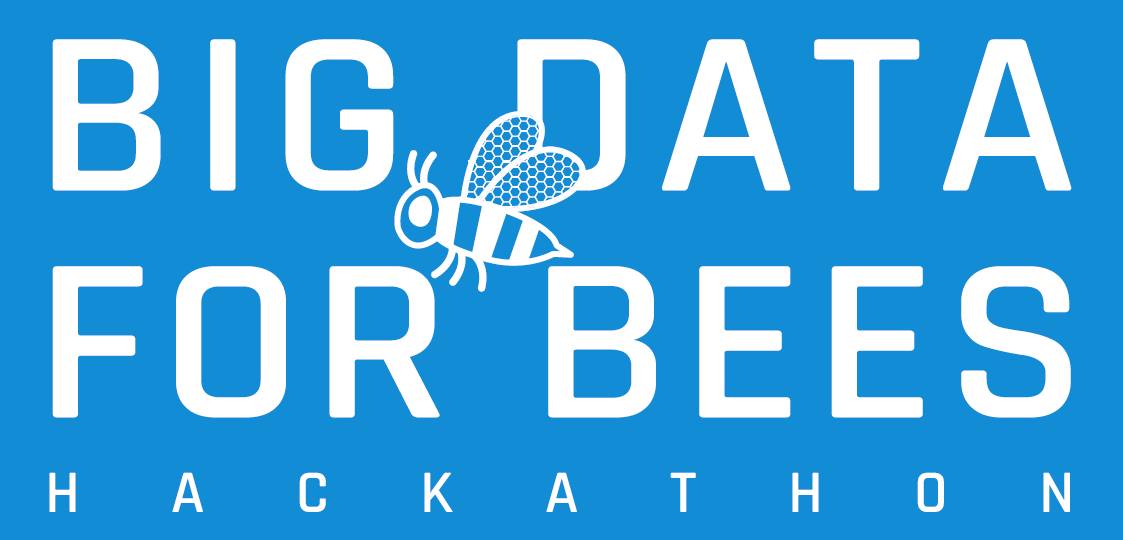
Challenges
Going into the hackathon six challengers published their challenge on the Farmhack Forum as a place for open collaboration, retention and peer-to-peer learning:
- Decision Support for Beekeepers challenge: What are the relevant relationships between hyve locations and environmental factors, and how can they be translated into a tool that supports beekeepers?
- Bumblebee observations & flower image challenge: to discover unknown relations within a dataset that contained 18,000 observations of bumblebees, or with other datasets.
- Groene Cirkels Bijenlandschap Challenge: a public-private partnership that had managed an increase in the number of bee species by 34% in their target area, offered access to their data and scientific model, challenging teams to make their initiative more SMART
- Green Infrastructure Challenge: This challenge focuses on contractors, builders, infrastructural companies and local governments and a decision support tool to support bee-friendly green infrastructure and public spaces.
- Serious Gaming Challenge: design a serious game to empower the many initiatives that want to do ‘something’ for bees, but lack practical knowledge about soil-plant-bee-relations and bee friendly management.
- Farming for Nature challenge: building on top of an existing initiative to build a dashboard to engage farmers in monitoring biodiversity, the challenge now is to deliver a building block around wild pollinators.
On the forum we shared an inventory of available data, data usage support and contacts of data experts (on site and remote). The program led participants through ideation and team formation. Around lunch time we had 6 teams, that had to code their solution in time for the pitching event at 13.00 pm the next day (you can read about our jury members and jury protocol here). This is what came out:
Results
Joined winners were the team ‘Happy Bee, happy me’ that worked on a serious game targeting a primary school children and teach and challenge them on bed and breakfast requirements of local bee species. They are joining forces with team Hommeles, that showcased some strong data analysis skills at the hackathon, and can develop the citizen science data-driven technology to collect photographs and do the identification of bee and flower species and ecological links that provide new scientific insights. These teams will receive 20.000 euro to develop a prototype.
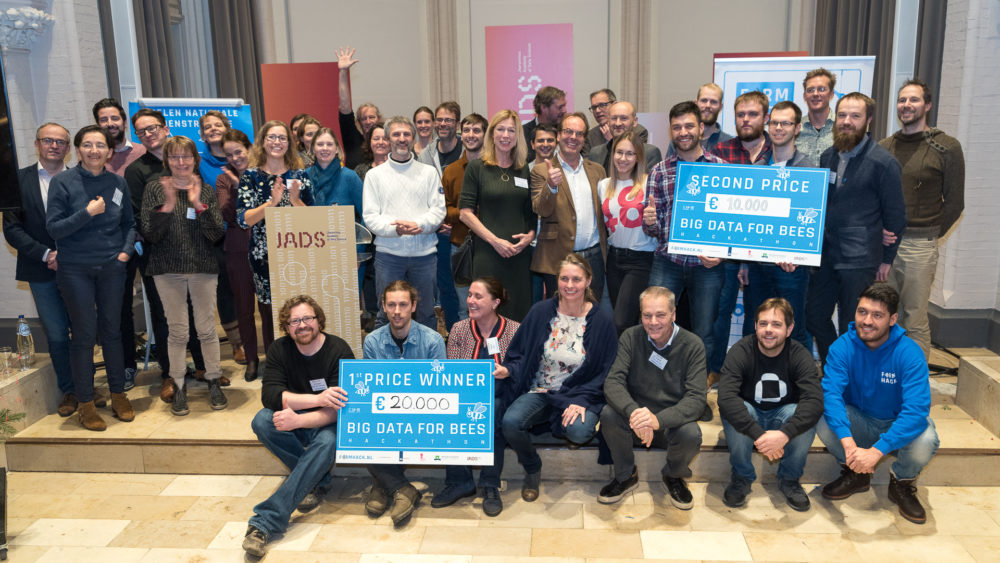
The second prize went to an Estonian-Dutch team working on decision support for beekeepers. They managed to build a working prototype, they used additional data such as the Food4Bees indexkaart and the Apiary Map and they shared their code on Github. A proper hackathon dream team 😉 In addition to 10.000 euro prize money, Food4Bees pledged additional development support. We have high expectations for this collaboration, plans to visit Estonian hive locations have already been made! Want to know more? Check out this Garage48 blogpost!
Honorary mentions go out to the other teams:
- Bee Support (“Sustainability through Green Infrastructure”). They focused on building authorities and companies that are looking for location-appropriate bee-supportive advice. They built a prototype viewer that gives details on local bee populations and plant species, and gives advice on what type of plant species to use as part of infrastructural plans.
- Farming for Nature: The team, with experts from WUR, KNMI, RVO, FarmHack and SAS, designed and built a “pollinator module” for a farmer-driven biodiversity monitoring & performance tool (the Biodiversity Monitor for Dairy). The module integrates data on ‘land use’ and ‘occurrence of pollinator species’ into a baseline score for pollinator hospitality which is farm specific. Plans are made for a dashboard for farmers to present data and engage farmers in monitoring activities (with which parties involved can follow up on earlier Rewarding Nature results.
- Bratislava meets Linked Open Data & GodFather of hackathons Marcel van Mackelenberg: this team definitely got points as 2/3rds of the team drove over 1200 kilometers to be present at the hackathon. The Slovakians were highly committed bee loving experts, working hard on their existing IoT solution for bee hive monitoring. They collaborated with Marcel, looking into a possible collaboration with a weather station start up in agriculture and also used Linked Open Data technology in an effort to make overall sense of all the available data (we will upload visual & explanation on the Forum asap)
Conclusion
We look back at an amazing event, with many dedicated bee loving people. The coming months we will work hard to process the outcomes and make sure they contribute to the Pollinator Strategy. A big shout out also to the Ministry, who not only have provided in the early stage investment money but also showed strong commitment by positioning themselves as the first client of the winning teams.
One of the takeaways for us as FarmHack is that on the one hand we celebrate the fact that we are getting better in mobilising funds and business support for teams. In addition to proper prize money, there are also plans for a follow up event at Rabobank HeadQuarters, that will also include the possibility to pitch to Rockstart, who are offering a fast track into their AgriFood program.
On the other hand, we do not exclusively attract startups. We run interdisciplinary hackathons, with valuable collaboration between tech and non tech participants. Often the more ground breaking ideas come from complex interdisciplinary teams. These types of teams however do struggle to move forward effectively after the hackathon, as they lack full time capacity. As FarmHack we want to support these complex interdisciplinary teams too.
But what about the bear who really likes his honey, you say? Well, check out this footage the Bratislava Bee team brought with them! ???
Our hack team from Bratislava brougt amazing footage 🐻💙 🍯 https://t.co/j1OXbwIBIT #BigDataforBees
— FarmHackNL (@FarmHackNL) December 15, 2018


